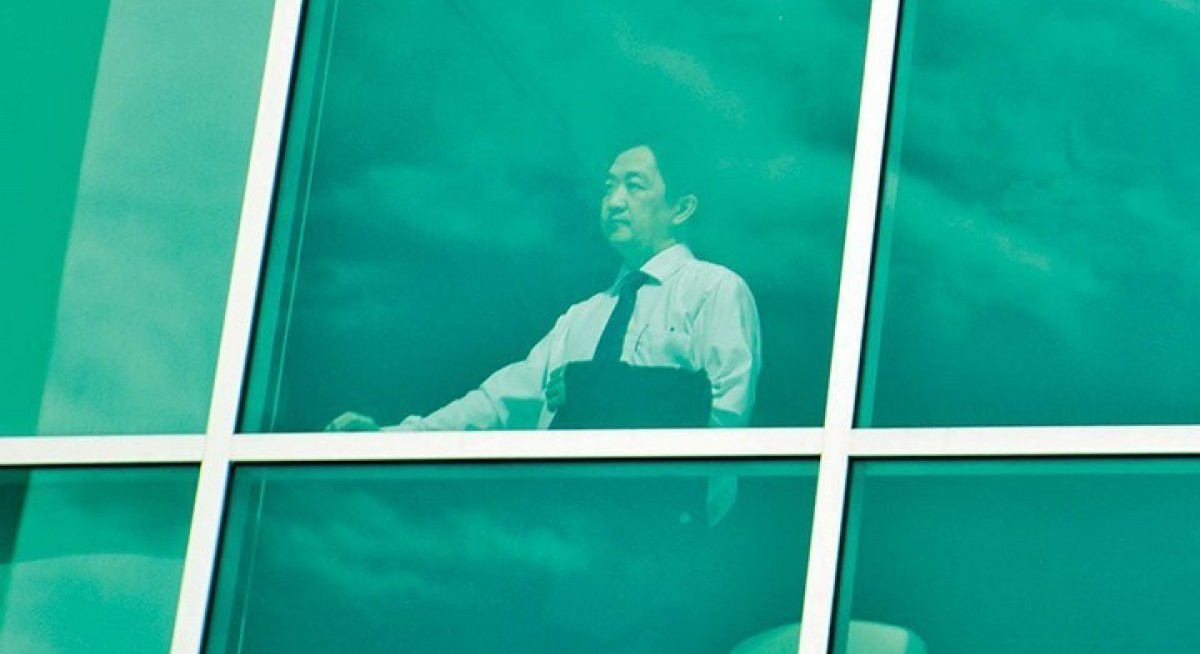Tjoa, who joined the brokerage in 1998, enjoyed a “global limit” of $30 million back in August 2012. This cap was further increased to $65 million by July 2013. “I believe I was one of the remisiers with the largest global limits at Phillip Securities,” says Tjoa in his conditioned statement.
According to his statement, Tjoa says he was consistently earning fees of more than $1 million a year as far back as 2007. This amount was so huge that the Inland Revenue Authority of Singapore requested Tjoa to register for GST — which applies only to businesses which have achieved annual turnover of that level.
To recap, Soh and Quah are on trial for allegedly manipulating the shares of Blumont Group, Asiasons Capital and LionGold Corp before they crashed spectacularly in October 2013, wiping out more than $8 billion in market value from the Singapore Exchange.
For more than two years, Tjoa says and his team of assistants at Phillip took trading orders from Soh and Quah. However, when the crash happened, the shares were forcibly sold off and Tjoa found himself shouldering the losses. For three years, Tjoa tried to get Soh to make good. But up until November 2016 before Soh was arrested, Tjoa had only received repayment in dribs and drabs amounting to just over $100,000 from Soh.
In 2015, Tjoa had to sell his family home for a net of $200,000 after deducting the outstanding mortgage and fees. He paid the whole sum to Phillip and was allowed to resume work as a remisier. However, he left the brokerage in January 2017 and as he still owed money to his former employer, he filed for bankruptcy in May that year.
‘Large limit’
Tjoa first met Soh and Quah in the middle of 2011. He was introduced by Ken Tai Chee Ming, who was another broker used by Soh and Quah. Tai told Tjoa that Soh and Quah were looking for a remisier with a “large limit”.
According to Tjoa, Soh and Quah arranged for accounts to be opened with him between September and October 2011. However, the accounts were not under the duo’s names. Rather, they were under the name of Soh’s and Quah’s known associates. These included Lim Kuan Yew, James Hong, Peter Chen, Lee Chai Huat, Richard Chan Sing En, Edwin Sugiarto and Neo Kim Hock. The individuals were all directors or managers at companies such as LionGold, ISR Capital, Blumont and Annica Holdings.
Lending his name to two accounts with Tjoa was also Goh Hin Calm, Innopac’s former interim CEO who was initially charged along with Soh and Quah but subsequently pleaded guilty.
In early 2012, Tjoa took trading instructions from Tai. Within months, Quah would instruct Tjoa directly to act on the various accounts under his care, regarding which shares to buy or sell.
In the later half of 2012, Soh introduced Dick Gwee to Tjoa, telling him Gwee was there to “help” because of his “experience”. By this time, Tjoa says he had already suspected that Soh and Quah were manipulating the counters and that Gwee was supposed to assist Soh in this area.
“When Soh first introduced Gwee, I did not understand what Soh meant when he referred to Gwee’s ‘experience’. However, I later did an Internet search on Gwee and found out that he was involved in a case of share manipulation involving a company called Mid-Continental. When I discovered this, I understood what Soh meant by Gwee’s ‘experience’,” states Tjoa.
Back in 1998, Mid-Continental was deemed a cornered stock and Gwee was jailed three months for his role in manipulating the counter. Tai, who was the prosecution witness before Tjoa, recounted before the Court how Gwee told him that he “took the bullet” for Soh in the Mid-Continental episode.
According to Tjoa, the revelation, plus his own observations of how Soh, Quah and the other associates interacted among themselves, led him to conclude that Soh was “the king amongst them” and that everyone else was serving under him.
“I saw it as ultimately Soh’s responsibility to pay for all of the losses incurred in the accounts. To my understanding, the accounts were all Soh’s proxy accounts. My understanding was confirmed by the fact that Soh never disclaimed responsibility for the losses in the accounts,” states Tjoa.
When the Commercial Affairs Department (CAD) started their investigations, Tjoa initially tried to cover up for Soh as he felt he needed to be on good terms with Soh so that the latter would make good the trading losses.
“I thought that by telling CAD the truth about Soh and Quah, I would risk losing Soh’s financial support, risk implicating myself, and yet accomplishing little or nothing at all,” states Tjoa.
It was only when Soh was arrested that Tjoa decided to come clean. “I realise that it was wrong to help Soh and Quah trade in the first place,” states Tjoa. “I was greedy in wanting to earn the brokerage commissions from the trades.”



